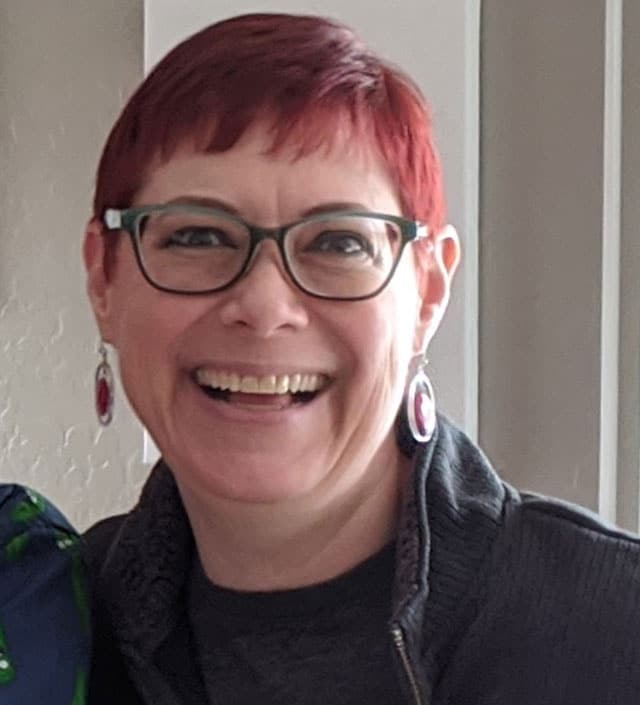Financial planner Virginia Asher’s peers are often shocked when she tells them one of the most important pieces of advice that she gives to her paying and pro bono clients and to financial-literacy students is to have a budget.
“In both types of work, I see people who don’t budget. People with money think they don’t have to budget. I’ve had planners even say that to me,” she says, laughing.
“They say, ‘Oh, my clients are wealthy. They don’t need a budget. I would never even suggest that. I would never use that word.’ Apparently, ‘budget’ is a dirty word now,” Asher says, still laughing. “So I tell them, ‘Well, then call it a spending plan.’”
A budget, or a spending plan, is a necessary road map for finding a path out of debt; for spending, saving and investing money wisely; and for planning for retirement, according to Asher. She was recently honored by the Financial Planning Association for her many years of volunteer work teaching financial literacy as well as advising clients who can’t afford financial planning services.
Getting financially fit
Asher, who lives and works in Phoenix, is such a stickler for the importance of living on a budget that, as a volunteer, she even teaches high school students, through the AZ Council on Economic Education’s Financial Fitness program, how to draft budgets and stick to them.
She emphasizes that while it’s important for her and for all planners to custom tailor financial plans for clients, every one of those plans should include a budget.
For clients finding it difficult to live within a budget, Asher talks to them about their jobs, taxes, expenses, healthcare costs and any other financial or other pressures weighing on them.
“Financial planning has grown into looking at someone’s life,” Asher notes.
“Most people go to a financial planner because they have questions about investments. But you can’t just make recommendations about investments without knowing about their taxes, estates, assets, what kinds of accounts they have.”
The health-wealth connection
Asher teaches and coaches individuals, groups and schools (mostly remotely) through Whealthy Living LLC, which she founded in 2020. She put the “h” in “Whealthy” because she believes that financial health is connected to physical and mental health.
“The American Heart Association and other groups do ongoing research showing that low-income people tend to have worse health (compared to those who are middle or upper class),” she says. “Financial education is a component of correcting that.”
The FPA presented Asher with the 2023 Heart of Financial Planning Award. It bestows this honor upon financial planning professionals, firms and organizations that demonstrate “remarkable commitment and passion for contribution or giving back to the financial planning community and/or public,” said the FPA release. “Awardees exemplify the spirit of financial planning and represent FPA’s goal to elevate the profession that transforms lives.”
The FPA credited Asher with long supporting the FPA of Greater Phoenix’s financial literacy efforts and playing a significant role in developing educational materials and providing presentations at several nonprofits.
Multiple hats
Asher currently juggles three part-time paid positions.
As a senior financial planner for TrustBank Wealth Management, in Phoenix, she develops financial plans for wealth management advisors.
She is also a part-time contractor for Chichester Financial Group LLC in Phoenix, serving as the firm’s director of financial planning. Here she assists in creating financial plans, analyzing planning alternatives, and researching strategies. Her specialties lie in Social Security, Medicare eligibility and IRAs.
Additionally, Asher works as a financial education specialist for Vida Private Wealth in Pasadena, Calif. Through Whealthy Living, she developed and teaches the curriculum for Vida’s “NextGen” program, educating clients, board members and their children and grandchildren in financial literacy.
Through the program, Asher has taught some classes to upper elementary, middle school and high school students. The courses will also be offered to college students and working young adults, Asher says.
Asher educates clients and students that not all elements of prevailing economic theory are correct.
“Economics assumes that every dollar is the same and you spend every dollar the same way,” she notes. “But that’s not true. Retirement money is different from checking and savings accounts.”
Volunteerism has wide reach
Asher also finds time to teach financial literacy programs, as a volunteer, through FPA, the YWCA and MoneyW!SE, which serves survivors of domestic violence. FPA of Greater Phoenix partnered with the YWCA’s Metropolitan Phoenix chapter and MoneyW!SE to offer the classes.
These remote classes have drawn students from all over the country, Asher says. Her work at the YWCA focuses primarily on women but does not exclude men, she adds.
A catastrophic accident helped jumpstart her career
It’s fitting that Asher now spends so much of her time teaching since, as a child, she had aspired to be a teacher.
“But I grew up with nothing, so by the time I got to high school, I didn’t think that was a great option for me,” Asher said. “I wouldn’t have the income stability I felt was necessary.” So, she put herself through college to study finance. “No one in my family had expected me to go,” she says.
After earning an associate degree, Asher was in a serious car accident and took a year off for medical treatment and recuperation. She later received some money through a legal settlement stemming from the accident.
“My attorney told me this money was for my future health problems and that 95% of people who get a windfall don’t have anything left in five years,” she remembers. “I am really stubborn. I didn’t want to be one of those people. It changed the trajectory of my career.”
‘Why I love behavioral planning’
Asher earned a B.S. in finance with international studies and found work as a planner. In 2019, she earned her master of science in advanced financial planning, with a concentration in financial life planning, from Golden Gate University. It’s the “life planning” that fascinates Asher the most, especially helping people find roads to recovery out of bad money habits.
“I always wanted to help people break the cycle that they don’t want to be in,” Asher says. “Not everyone wants to change, but a lot of people want to. They just don’t know how. Some people are deep in debt, but don’t know how to get out of it because they haven’t figured out their spending.”
Being able to help people figure out their financial goals, find solutions and adjust their behaviors to sustain their plans is “why I love behavioral planning,” she says.
One part planner, one part therapist
Asher says she must ask some clients hard questions about their money habits. For example, “Why do we impulse buy? Why do we give money to people who won’t give it back? I see that in my paid and unpaid work,” she says.
“You would be surprised how many people in retirement are subsidizing their [grown] kids’ lifestyles,” she says. “But while the amount of money given to grown children tends to keep rising, their parents’ income is not rising anymore.”
Asher says that she does ask planners to be cautious about advising against all family support. “A lot of cultures have a strong sense of family support. But you have to put your own face mask on before you can help someone else,” she says, borrowing from flight attendants’ instructions to passengers just before takeoff.
As she works with those 50 and older, one of the biggest financial literacy gaps Asher sees is that “they think they shouldn’t spend from assets.” However, as long as the account holder is old enough to withdraw from retirement accounts without incurring any financial penalty, it’s often better financially to spend from those accounts instead of taking Social Security on the earlier side, she says.
“Some seniors think they should apply for Social Security as soon as possible,” Asher says, although research shows that’s not the best option. She encourages waiting until at least full retirement age, which, for most is 66 to 67, in order to be able to collect more. “After 70, there is no benefit to waiting anymore,” she says.
However, people “think their Social Security won’t be there if they wait. A lot of decisions are made out of fear,” she says.
What else seniors can learn about money
Asher says that clients 50 and older sometimes increase their spending as their incomes decline. For example, one of her former clients had not been fully honest about just how excessive the overspending was.
“We talked and identified fixed expenses, looked at income sources and got them a fixed annuity, so at least if they ran out of money their basic expenses would be covered,” Asher says.
And in her multi-age MoneyW!SE class, seniors taught younger students how to write checks and the younger students taught the seniors how to use online banking, Zell and Venmo.
Asher has also worked with senior citizens, often women, who survive their spouses who had done all of the financial tasks. For these seniors, developing a spending plan is helpful, including limits on charitable contributions.
“Some widows want to support charity, but start giving all their money away,” Asher said. “So we set an amount in a plan and review it each year. It gives them a way to tell charities ‘no.’”
Looking ahead
When asked what planners can do to improve literacy among clients and in their communities, Asher says they should make sure clients not only understand what their financial limits are, but also that they shouldn’t swing to the other extreme.
“There are people hoarding money,” Asher says. “They should live their lives. A spending plan can show you what you can afford to spend.”
Asher also has additional goals for herself. Starting next year, she will begin teaching self-designed courses at Unfair Advantage Performance, owned by Watus Cooper, in Tempe, Ariz. Watus does functional training (a cross between physical therapy and fitness training.)
Asher also hopes to continue to teach advisors, something she has done so far only informally:
“I want to remind them that we’re not judging where people are,” she says, and that certain types of installment debt, such as mortgages and auto loans, can help them build credit. “So many advisors think their clients shouldn’t have any debt or never buy a new car.”
Denise DiStephan is an award-winning, veteran journalist and communications professional based in New Jersey.







